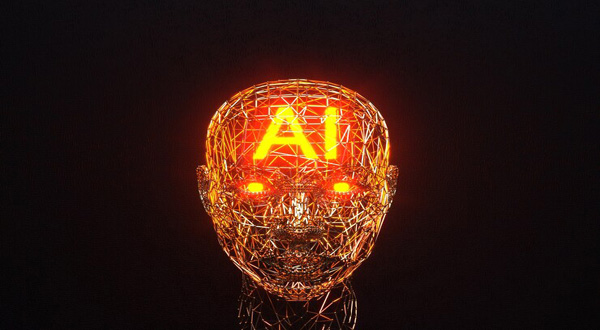Understanding Artificial Intelligence: Unveiling the Best Definition
- Update Time : Wednesday, February 28, 2024
- 28 Time View

Understanding Artificial Intelligence: Unveiling the Best Definition
: In this article, we’ll embark on a journey to unravel the mysteries behind artificial intelligence (AI) and provide you with the best definition that resonates with the general public. From its inception to its real-world applications, we’ll delve into the fascinating world of AI, using simple language and relatable examples.
Table of Contents
| Sr | Headings |
|—–|———-|
| 1. | Introduction to Artificial Intelligence |
| 2. | What is Artificial Intelligence? |
| 3. | The Evolution of AI |
| 4. | Types of Artificial Intelligence |
| 5. | Machine Learning: The Backbone of AI |
| 6. | Deep Learning: Unraveling Complex Patterns |
| 7. | Natural Language Processing (NLP): Communicating with Machines |
| 8. | Robotics: Bridging the Gap Between AI and the Physical World |
| 9. | AI in Everyday Life |
| 10. | Ethical Considerations in AI |
| 11. | The Future of Artificial Intelligence |
| 12. | Conclusion |
| 13. | FAQs about Artificial Intelligence |
1. Introduction to Artificial Intelligence
Artificial Intelligence, or AI, is a buzzword that has captured the imagination of many. But what exactly is AI, and how does it impact our lives? Let’s embark on a journey to demystify AI and understand its significance in today’s world.
2. What is Artificial Intelligence?
Artificial Intelligence encompasses the development of computer systems that can perform tasks that typically require human intelligence. These tasks include learning, reasoning, problem-solving, perception, and even understanding natural language.
3. The Evolution of AI
Over the decades, AI has evolved from a theoretical concept to a tangible reality. Initially focused on symbolic reasoning, AI has now branched into various subfields such as machine learning, deep learning, natural language processing, and robotics.
4. Types of Artificial Intelligence
AI can be broadly categorized into two types: Narrow AI and General AI. Narrow AI is designed for specific tasks, such as virtual assistants or recommendation systems, while General AI aims to possess the same level of intelligence as humans across a wide range of tasks.
5. Machine Learning: The Backbone of AI
Machine Learning is a subset of AI that enables computers to learn from data without being explicitly programmed. It powers various AI applications, from personalized recommendations on streaming platforms to fraud detection in financial transactions.
6. Deep Learning: Unraveling Complex Patterns
Deep Learning is a sophisticated subset of machine learning inspired by the structure and function of the human brain’s neural networks. It excels in handling vast amounts of unstructured data, such as images, audio, and text, to extract meaningful insights.
7. Natural Language Processing (NLP): Communicating with Machines
Natural Language Processing (NLP) focuses on enabling machines to understand, interpret, and generate human language. From virtual assistants like Siri and Alexa to language translation services, NLP plays a crucial role in human-computer interaction.
. Robotics: Bridging the Gap Between AI and the Physical World
Robotics combines AI with mechanical engineering to create intelligent machines capable of performing physical tasks. From manufacturing to healthcare, robots are revolutionizing various industries, enhancing efficiency, and safety.
Read More: Unraveling the Best Forms of Artificial Intelligence: A Guide for Everyone
9. AI in Everyday Life
AI has seamlessly integrated into our daily lives, from personalized recommendations on streaming platforms to voice-activated assistants guiding us through our routines. Its presence continues to grow, shaping the way we work, communicate, and interact with technology.
10. Ethical Considerations in AI
As AI technologies advance, ethical considerations become increasingly important. From bias in algorithms to job displacement, it’s essential to address the ethical implications of AI to ensure its responsible and equitable use.
11. The Future of Artificial Intelligence
The future of AI holds boundless possibilities, from further advancements in machine learning and robotics to breakthroughs in healthcare, transportation, and beyond. As technology continues to evolve, so too will the capabilities of artificial intelligence.
12. Conclusion
In conclusion, artificial intelligence is a multifaceted field that continues to shape our world in profound ways. From its humble beginnings to its pervasive presence in our daily lives, AI represents the pinnacle of human ingenuity and technological innovation.
13. FAQs about Artificial Intelligence
What are the main applications of artificial intelligence?
Artificial intelligence finds applications in various fields, including healthcare, finance, education, transpo
rtation, and entertainment.
How does artificial intelligence learn?
Artificial intelligence learns through algorithms that analyze data, identify patterns, and adjust their actions accordingly, mimicking human learning processes.
Can artificial intelligence replace human jobs?
While AI may automate certain tasks, it also creates new opportunities and enhances productivity. The impact on jobs depends on how society adapts to these technological advancements.
Is artificial intelligence biased?
Artificial intelligence can exhibit bias if trained on biased data or developed with inherent biases. Addressing bias in AI requires ethical considerations and proactive measures during development and deployment.
What ethical considerations are associated with artificial intelligence?
Ethical considerations in AI include issues of fairness, accountability, transparency, privacy, and the potential societal impacts of AI technologies.
As we navigate the complexities of artificial intelligence, it’s crucial to foster an informed dialogue and approach its development and implementation with careful consideration for its ethical and societal implications. Artificial intelligence holds immense potential to improve our lives, but it’s essential to wield this power responsibly and ethically.












